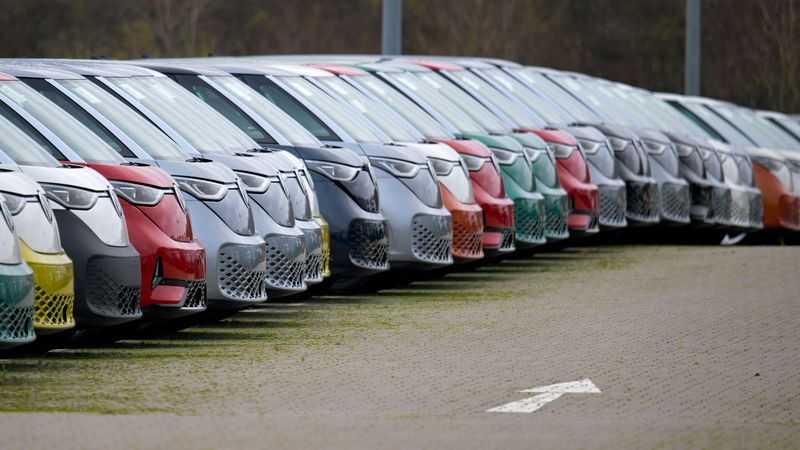Central Europe's banks can withstand car sector turmoil, S&P says
By Gergely Szakacs
BUDAPEST (Reuters) - Turmoil in Europe's car sector could hit the central European economy and hurt banks' asset quality, S&P Global said on Tuesday, although it added that lenders were strong enough to withstand stress in their automotive portfolios.
Automakers across Europe have announced plant closures and big layoffs as they struggle with weak demand, high costs, competition from China and a slower-than-expected transition to electric vehicles.
The sector is a mainstay of central Europe's economic growth, accounting for 5% to 10% of the region's gross domestic product and 5% of its employment, according to S&P.
"While direct credit exposure of CEE banks to the automotive sector is relatively low, at about 3%-5% of total corporate loans, a significant downturn could impair the region's economy and banks' asset quality," it said.
Although major carmakers have diversified their funding away from bank loans to capital markets, S&P said shocks in the industry could still lead to significant knock-on effects.
The threat of U.S. tariffs on European car imports, tighter emissions regulations in the European Union from 2025 and intense competition from Chinese electric carmakers could pose additional challenges, S&P said.
"While further stress in the automotive industry could lead to additional credit losses - primarily because of potential spillovers to suppliers - we believe CEE banks' earnings and capital levels are sufficiently strong to absorb the financial hit," it said.
It added that disruptions to global trade and the shift to electric cars could create opportunities for some countries, such as Hungary or Serbia, with large Chinese banks actively monitoring investments and opportunities in the region.
Under Prime Minister Viktor Orban, Hungary has become an important trade and investment partner for China, in contrast with some other EU nations that are considering becoming less dependent on the world's second-largest economy.
"ICBC set up a bank in Austria in 2019 and from there they're operating across CEE, like other Chinese banks with subsidiaries in the region," S&P analyst Cihan Duran said, also citing Bank of China and China Construction Bank (OTC:CICHF ) as examples.
"There's big interest in Hungary as one of the largest markets where they try to partner up with Chinese companies in Hungary, but also with Hungarian companies having partnerships with Chinese investments and funds."
Source: Investing.com
